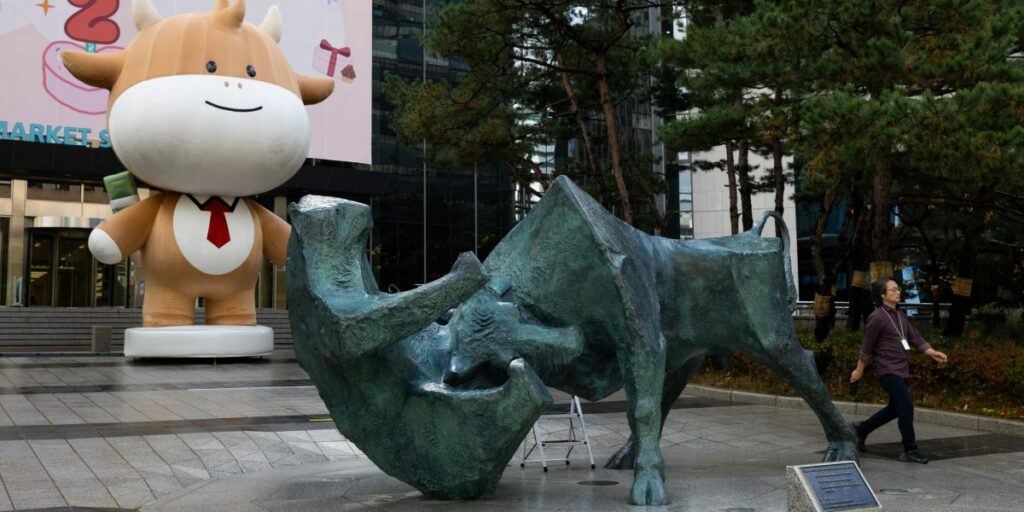South Korea is extending a ban on stock short selling through March 30 next year and planning harsher penalties for illegal trades.
“If short selling is resumed without a monitoring system in place, there is the risk that massive illegal activities may be repeated,” said Kim Soyoung, vice chair at the Financial Services Commission. “It will be allowed from March 31 after the platform is ready,” he said, adding that it’s difficult to say whether the rule change will be applied to all stocks.
The government banned the trade in November to root out naked short selling—a practice of selling shares without borrowing them first—which is illegal in the country. The restrictions were due to expire at the end of this month, but authorities have recently signaled that the deadline will be extended until a system to detect improper trades is ready.
In an earlier Thursday statement, the government said it will increase financial penalties and jail terms up to life imprisonment for illicit activities. Same terms on repayment and margin requirements will be applied for retail and institutional investors to create a level playing field, it said.
While retail investors have welcomed the short-selling ban, the move has been controversial within the financial community as the strategy is widely used by money managers in other markets. MSCI Inc. said in its annual market accessibility review that the country’s short-selling accessibility is “deteriorating.”
“It’s better late than never,” said Jung In Yun, chief executive officer at Fibonacci Asset Management Global Ptd. “I’m optimistic that the resumption of short selling would increase liquidity in South Korea and lower volatility.”
Nonetheless, the moves showed that “regulations in South Korea, like China, could change overnight and tarnished the image of the nation,” he added.
South Korea’s equity benchmark Kospi Index closed 1% higher on Thursday, trimming gains of as much as 1.8%.
Authorities are planning penalties of up to six times the profit from illegal short selling, up from five times now, the statement said. Those whose profit from such trading misdeeds is at least 5 billion won ($3.6 million) can face up to life in prison, a change from a maximum 30-year jail term previously.
The government will also adopt a repayment period of 90 days for both retail and institutional investors, which can be extended up to twelve months. Those who engage in illegal short selling will be restricted from serving as executives at listed companies and financial firms in Korea. Stricter rules will also be applied in disclosing short positions. The changes would need parliamentary approval.
Shortly after the trade was banned, South Korea launched an investigation into global banks to scrutinize their past transactions of short selling. Investigators have so far found $156 million worth of illegal short trades by nine global investment banks, most of which were procedural rule violations.
